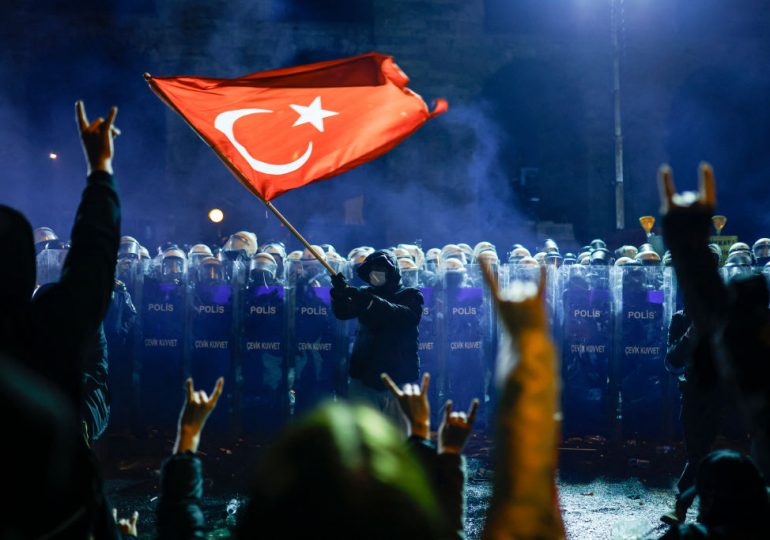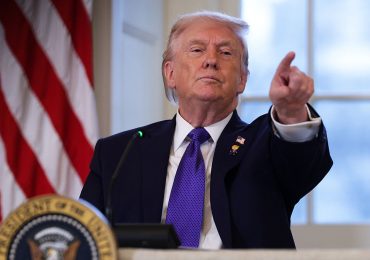Once again, Turkey faces political turmoil. Istanbul Mayor Ekrem Imamoglu of Turkey’s main opposition Republican People’s Party (CHP) was detained on March 19 and then formally arrested on March 23. He stands accused of a host of poorly evidenced charges: “establishing and managing a criminal organization, taking bribes, extortion, unlawfully recording personal data, and rigging a tender.” Imamoglu, who called the charges a “black stain on our democracy,” has also been suspended from his position as mayor. If convicted, as is expected, he will not be allowed to run for President.
[time-brightcove not-tgx=”true”]
Despite this, the CHP, which says the arrest is politically motivated, held its previously scheduled primary and named Imamoglu as its presidential candidate for the 2028 election. Meanwhile, protests continue to rock Turkey. Police have moved to try to contain them in Istanbul, the largest city; Ankara, the capital; Izmir; and other cities around the country.
We’ve seen this scenario before. Erdogan has now been in power for 22 years, and he intends to remain there. He has tightened his government’s control of the military, which launched a failed coup against him in 2016, the country’s justice system, and its media. Against that backdrop, the arrest of the candidate most likely to defeat Erdogan is unsurprising. When Imamoglu was first elected Istanbul’s mayor in 2019, Erdogan claimed the election had been stolen and ordered a do-over. But Imamoglu won the rerun by a wider margin, and the CHP has since won control of every major city in Turkey.
Erdogan is calculating that he can ride out the protests. He’s done it before. When his government announced in the summer of 2013 that Istanbul’s Gezi Park, one of the city’s few green spaces, was to be redeveloped to include a rebuilt Ottoman military barracks and a shopping mall, demonstrators began occupying the park. When police launched a harsh crackdown on those who had set up tents, public anger at Erdogan’s response triggered startlingly intense nationwide protests. Erdogan was able to let them pass, and nearly a dozen years later, he has a much firmer grip on the country.
Still, CHP leader Ozgur Ozel and other opposition politicians are trying to keep Imamoglu’s story in the public eye by mobilizing the CHP’s 1.7 million members. On March 24, Ozel called for a boycott of any media outlet that refuses to cover the protests. It will once again accuse Erdogan of using the power of the state against Turkey’s democracy. But the Turkish President’s ability to quell those protests make any threat to his government unlikely to succeed.
By March 27, nearly 1,900 protesters had been arrested since Imamoglu’s detention. Erdogan himself has accused demonstrators and protest organizers of stirring unrest to “disturb the peace and polarize our people.” The government has so far largely tolerated the mass protests in Istanbul, where hundreds of thousands have been gathering. But elsewhere around the country, further from the public eye, they look set to be suppressed by any means necessary. There are also moves to push opposition voices off social media.
Erdogan isn’t facing much international pressure to change course. The European Commission has issued a statement calling on Erdogan’s government to “uphold democratic values,” but it doesn’t have leverage here. Turkey’s President has a strong relationship with Donald Trump. All who want less volatility in the Middle East also want Erdogan to help stabilize the new government in Syria, and Europe wants NATO member Turkey to back its security guarantees for a ceasefire in Ukraine.
Imamoglu’s arrest marks one more big step toward authoritarianism in Turkey, where democracy already came with an asterisk.
Leave a comment








